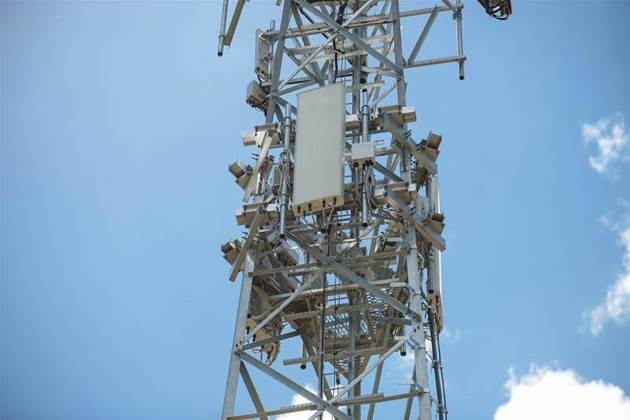Vocus wants the government to open its mobile blackspots scheme ahead of an $80 million sixth round in a way that encourages competition on federally co-funded mobile towers.

The ASX-listed company said the cost of backhaul to and from these towers may be a factor that stops many mobile telcos from co-locating equipment under the scheme.
Towers built under the scheme are co-funded by the government and a mobile telco.
While one of the express aims of the scheme was to encourage other telcos to then co-locate their own antennas on these towers - giving surrounding residents a choice of carriers - this has largely not occurred.
Both Optus and Vodafone say they have had problems trying to co-locate equipment on towers they do not own.
There are also wide gaps in the proportion of federally co-funded towers that are being shared, depending on which carriers are involved.
Vocus said that while the blackspots scheme “has successfully expanded mobile coverage in regional and remote Australia, it has been less successful at improving mobile competition.”
“Of the 1047 sites funded to date, three-quarters of those sites are being delivered by a single operator (Telstra), and just 96 (less than 10 percent) of new towers funded under the program have been used by other mobile network operators to co-locate competitive network equipment,” Vocus said in a submission to an inquiry on regional Australia. [pdf]
While there were “a number” of potential reasons why co-location hadn’t occurred to any significant extent, Vocus suggested one reason “is the prohibitive cost of backhaul” to and from the towers.
“High backhaul costs are often a critical factor in an [operator’s] decision not to co-locate equipment on a mobile tower,” Vocus said.
Vocus suggested there may be merit in “separating funding for the tower and backhaul elements of the program.”
“Under the existing funding model, the successful applicant for a new tower could be incentivised to keep backhaul prices high to reduce the risk of competitive co-location on that tower,” Vocus said.
“A tower operator may decide that the increased coverage advantage they enjoy from being the only operator in that location is greater than the financial benefit they would enjoy from selling tower space and backhaul services to a competitor.
“If the program provided for separate tendering for tower and backhaul providers (or required successful bidders for new towers to obtain competitive quotes for backhaul links), the [scheme] could inject a new element of competition into funding proposals – potentially lowering costs and improving competition.
“By breaking the nexus between the tower and backhaul elements of a proposal for a new mobile site, the [scheme] could incentivise bids from open-access, carrier-neutral backhaul providers.”
Such a split in the funding could benefit players like Vocus, which are excluded at bidding for work in the scheme’s current configuration.
But Vocus also put forward an even more radical construct, whereby blackspots could be served by a single white-label operator that rented access to any existing mobile operator.
“An alternative approach is for a wholesale-only operator to build a new tower with one set of RAN (radio access network) equipment which is made available on an open-access basis to all major telcos, removing the duplicative costs of multiple providers installing multiple sets of equipment [on a single tower],” Vocus said.
“This model has been successful in the UK and New Zealand. For example, the New Zealand Rural Connectivity Group is an independent entity established to build, operate and maintain a new open-access network where each new tower and RAN equipment is shared by the three [operators].
“Like the [mobile blackspots scheme], the program utilises public funds to expand mobile coverage in non-commercial areas, and the shared model reduces duplicative costs and delivers greater choice of service provider for end-users.”

.png&h=140&w=231&c=1&s=0)

.png&h=140&w=231&c=1&s=0)





.png&w=120&c=1&s=0) Tech in Gov 2025
Tech in Gov 2025
 Forrester's Technology & Innovation Summit APAC 2025
Forrester's Technology & Innovation Summit APAC 2025
.png&w=120&c=1&s=0) Security Exhibition & Conference 2025
Security Exhibition & Conference 2025
 Integrate Expo 2025
Integrate Expo 2025
 Digital As Usual Cybersecurity Roadshow: Brisbane edition
Digital As Usual Cybersecurity Roadshow: Brisbane edition











.jpg&h=140&w=231&c=1&s=0)



